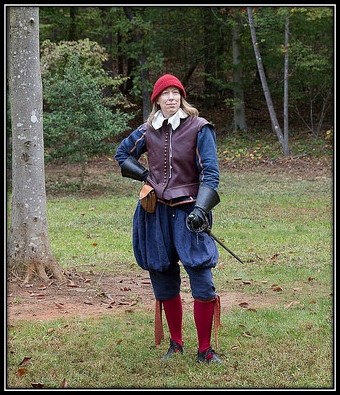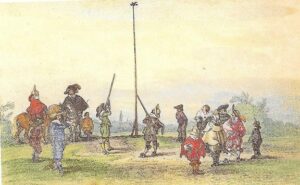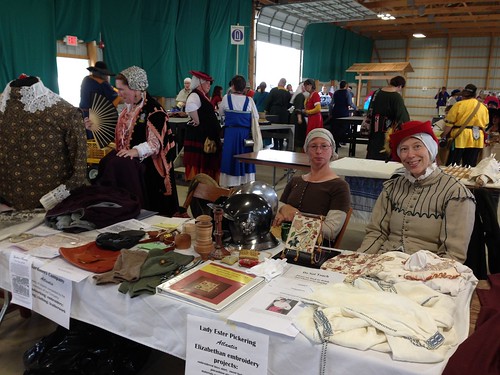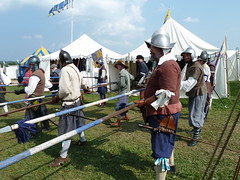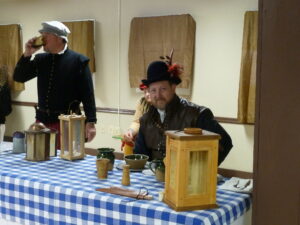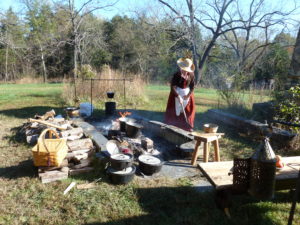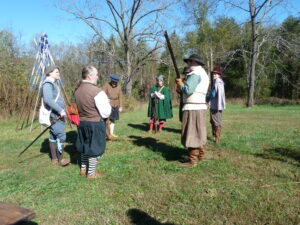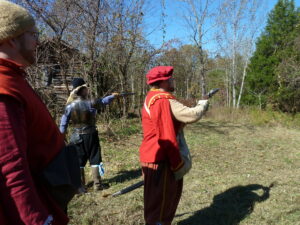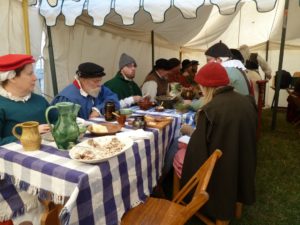Report on the Great Muster 1597
Master Robert Bedingfield’s Report on the Great Muster of Gardiner’s Company of the London Trayned Bandes the fourteenth day of October 1597
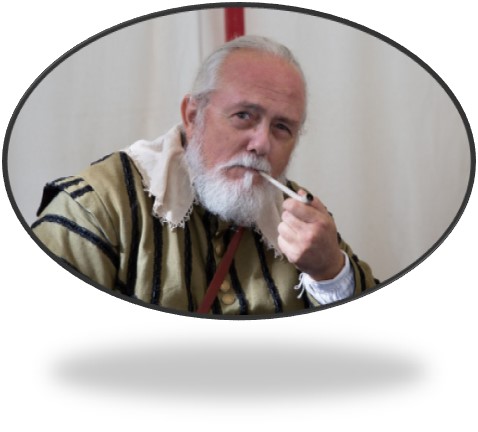
By Order of Captain Gardiner, a Very Great Muster of the Company was held the week before St. Luke’s at the Cat’s Perch Inn, wherein the Company did receive good service and drink.
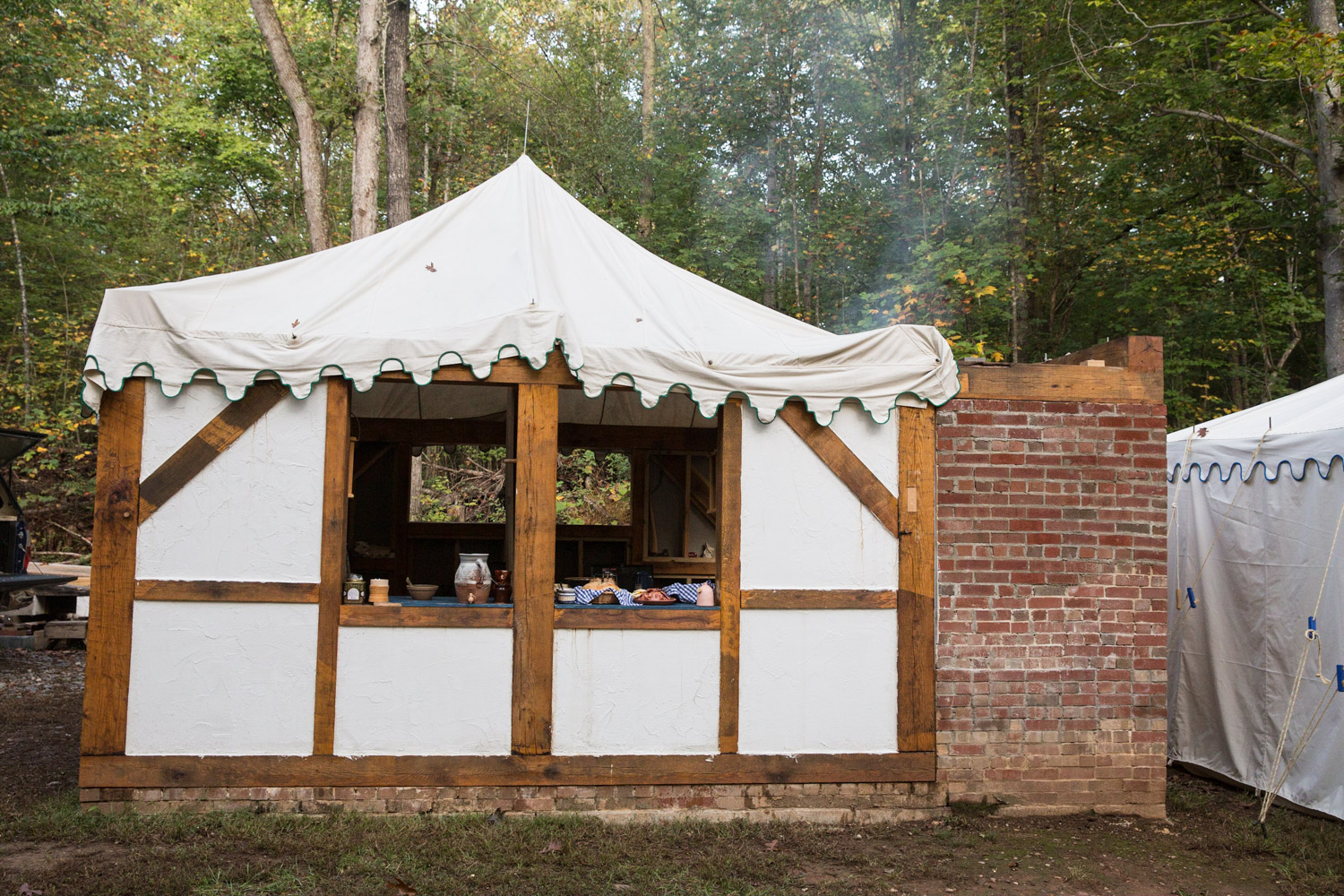
The Cat’s Perch having been stolen some years before is (still) in a rebuilding year and has recently completed for the most part a Very Great Kitchen, missing only a roof, door, shutters, a proper dresser, shelving, an oven, a brazier, interior walls and floor befitting it.
An abundance of very satisfying and wholesome meat was served, as well as the Cat’s Perch’s well-famous Incredibly Strong Ale, and was admired and consumed in quantities large by the Company.
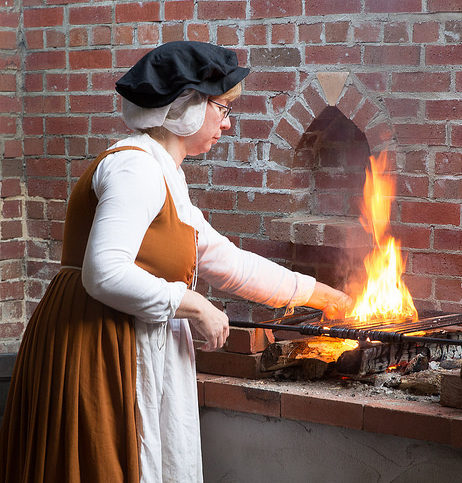
The cooks did prepare our meals upon an open hearth and expressed satisfaction with the kitchen’s accommodations
************************************************************
The cooks did prepare our meals upon an open hearth and expressed satisfaction with the kitchens accommodations.
Butter was churned,
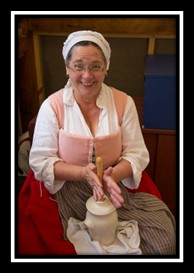
The Company fed well,
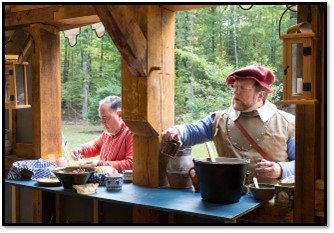
and all had a Very Fulsome and Satisfying Dinner.
*************************************************************
Drill was the Order of the Day (see what I doth there), with the Pike making a Very Ardent, if Unskilled show of its prowess, to the Delight of Fanny, the Innkeep.
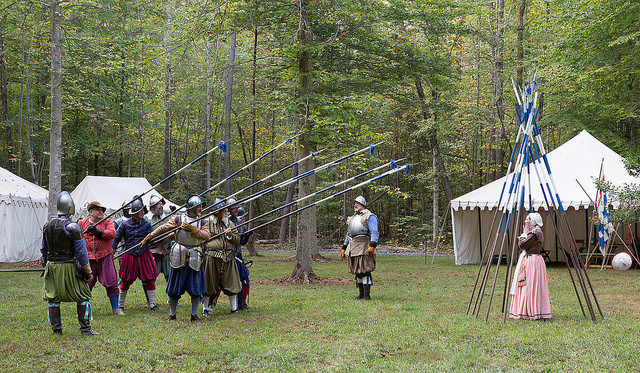
Later in the Day, the Pike did hone their skill by trimming the shrubbery.
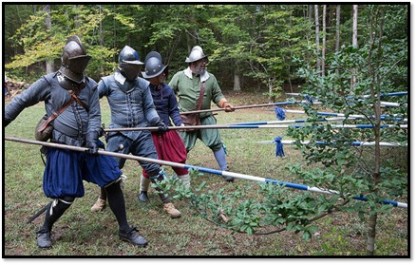
The Company’s Shotte was also Very Well Accounted in practice.
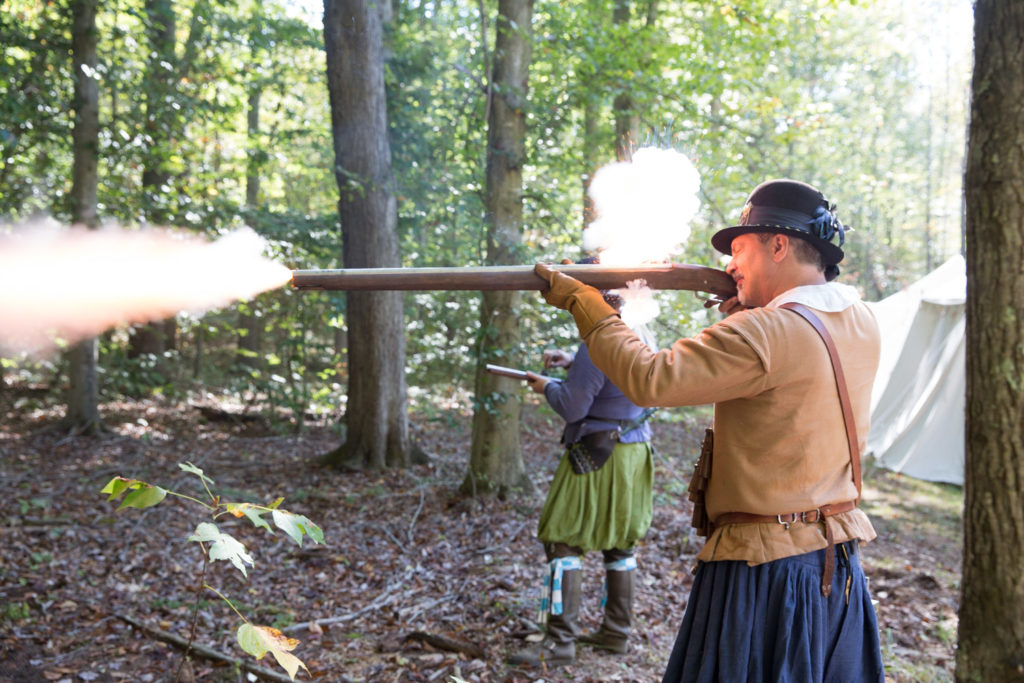
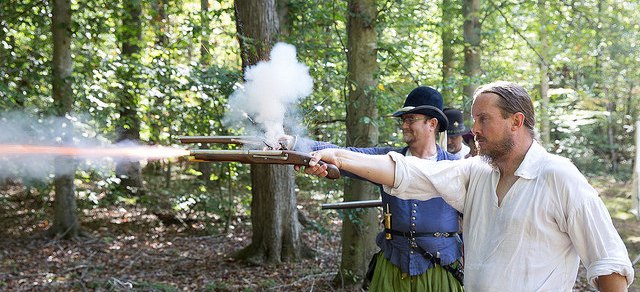
The practice of Sword was not neglected and the Company acquitted itself in its use Very Respectfully.
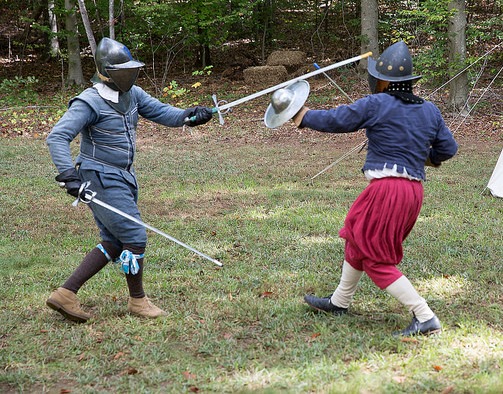
******************************************
There was after the Dinner a competition of a Popinjay Shoot, sponsored by Capt. Gardiner and overseen by Master Bedingfield, who had previously engaged with the Innkeep to procure a Popinjay for this purpose.
When the commissioned Popinjay was determined to have been kept too close to the kitchen fires,
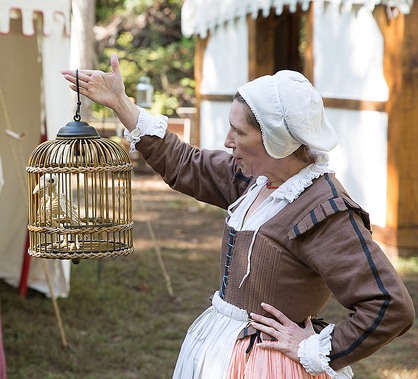
…a substitute was offered, with a Very Energetic negotiation as to price and the true nature of its Popinjay-ness being in dispute.
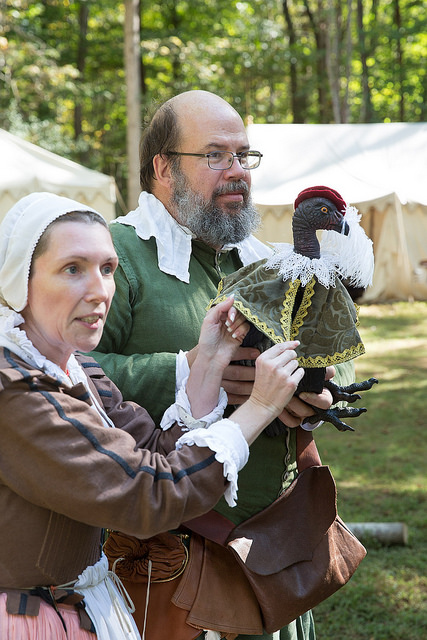
At the end, a very fine Shoot was held
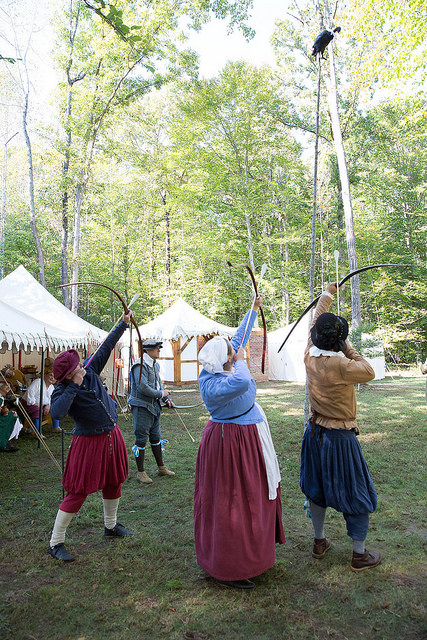
with Mistress Kate winning the Shoot by detaching the Popinjay from its hat.
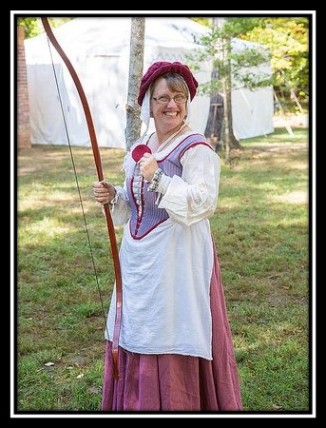
******************************************
After a fine Supper, the Company took its ease and a Very Well-earned rest.
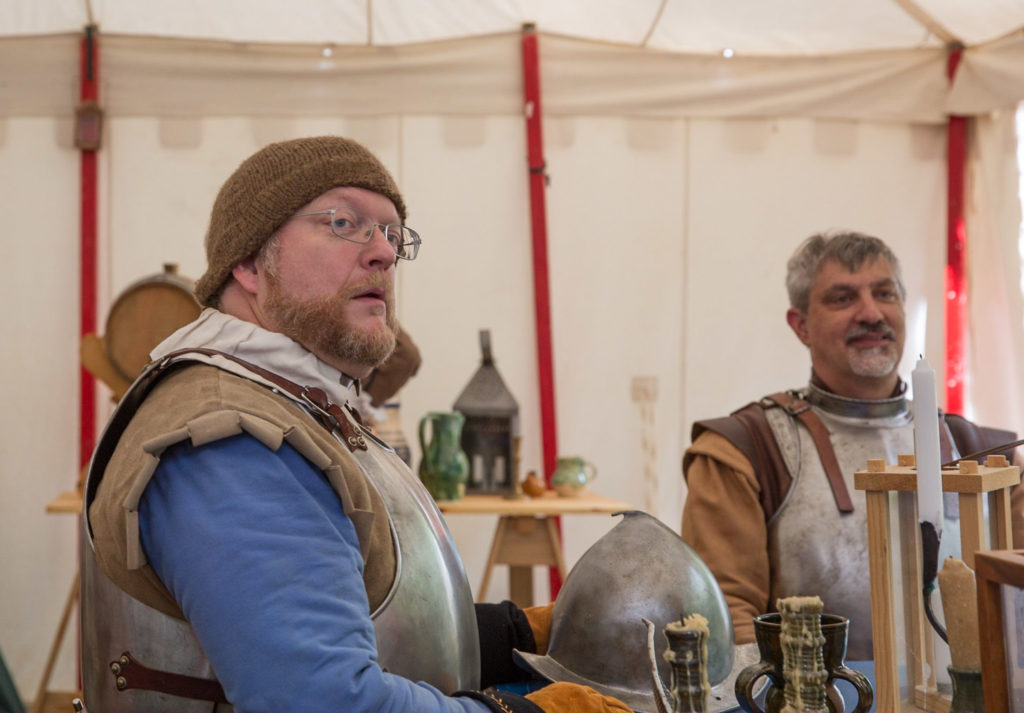
In all a very fine Muster was had with the Company now Proudly to field a Very Formidable force of fine Young Gallants.
